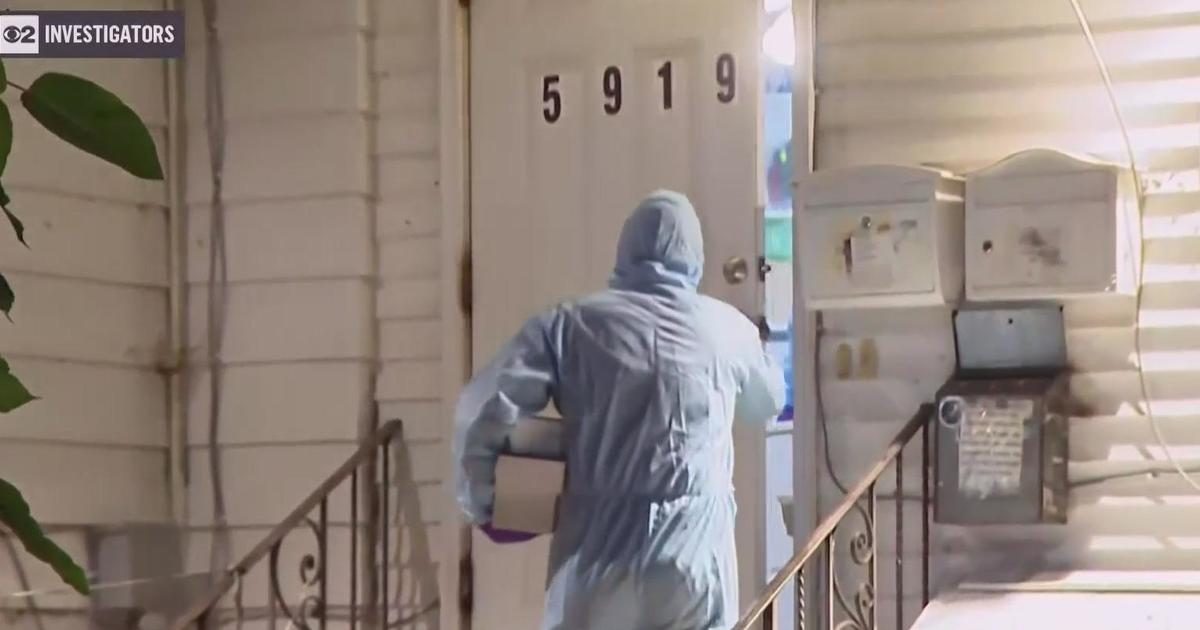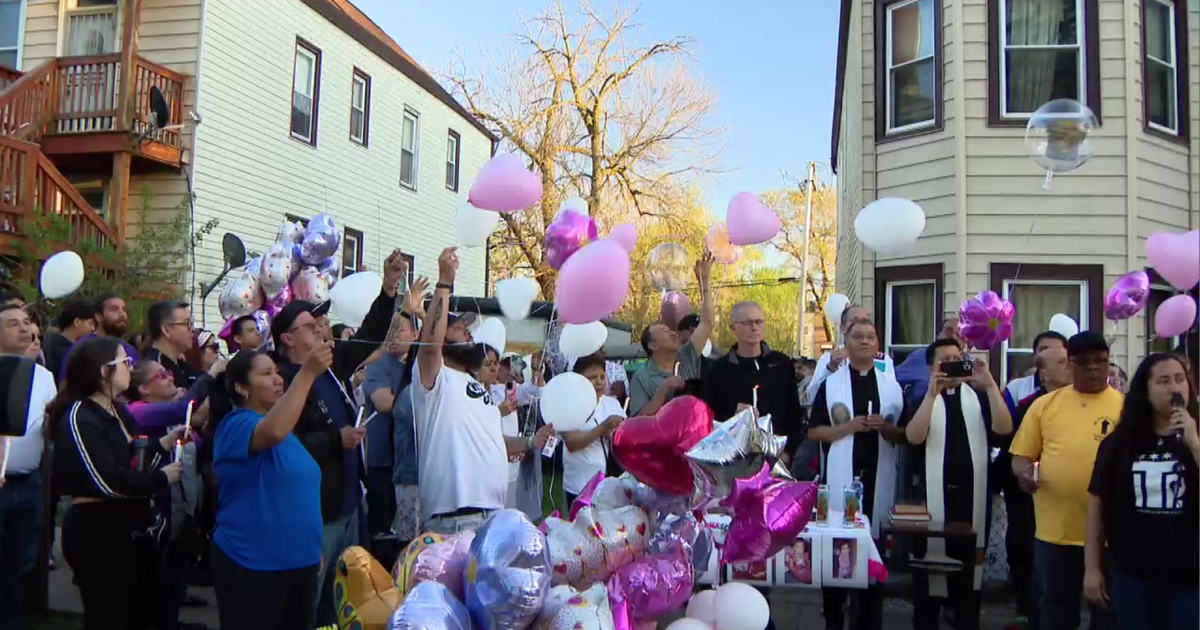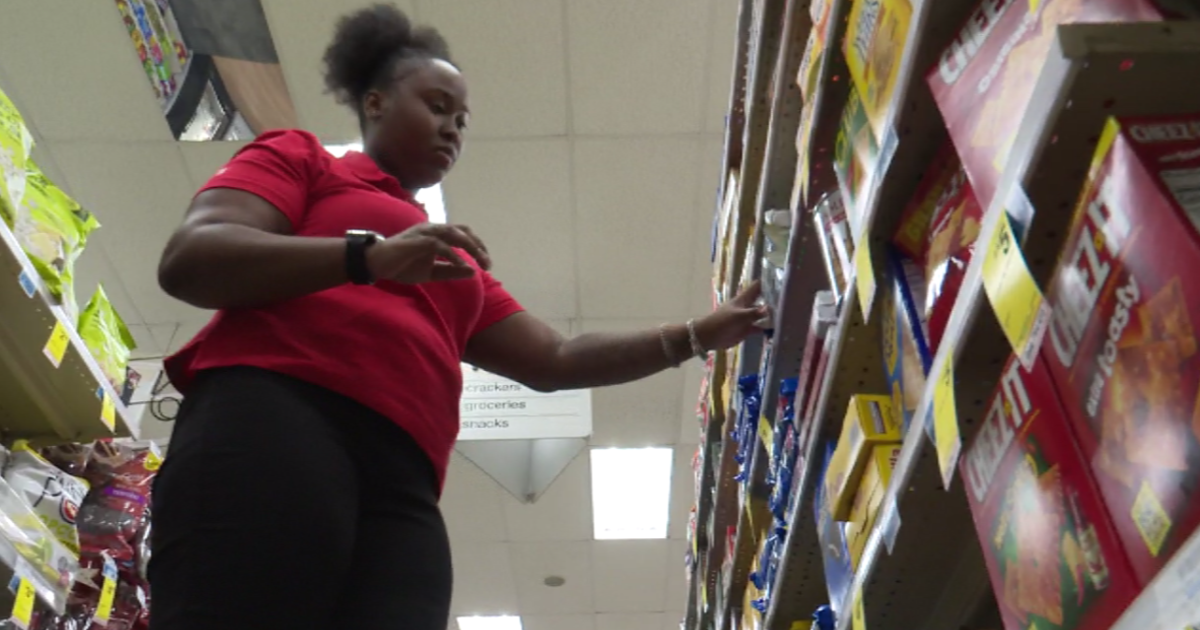2 Investigators: Critical School Lunch Violations
CHICAGO (CBS 2) - Before your child eats lunch at school cafeteria, workers must make sure everything is sanitized, their hands must be washed, and they must use thermometers to check if hot food is kept hot enough and cold food is kept cold enough to keep bacteria from growing.
Lunch equipment must also be kept in good working order. These are just a few of the critical health code violations inspectors look for because if left uncorrected, they could make someone very sick.
The CBS 2's Pam Zekman obtained inspection reports for 1,056 schools in Cook, Kane, Will, Lake and DuPage counties and found hundreds of them had one or more critical violations last year.
One of them was Canton Middle school in Streamwood where inspectors found "temperature violations" with some food including Sloppy Joes, which had to be discarded. Water buckets had no sanitizer for cloths used to wipe lunchroom tables, reasons why the Cook County Health inspectors gave the school a score of 75, a failing grade.
"I was appalled," said Claudie Phillips, the Director of Food and Nutrition Services. "Because I know this is unlike what is usually found in our school district. It's totally unacceptable."
Phillips showed CBS 2's Zekman a food warmer that had been repaired and how staff was retrained and procedures changed. As a result, the school got a 96 on its most recent inspection.
"My message to the parents at this school is to trust that we have taken every measure to correct this problem," Phillips said and "to make sure this does not happen again."
Officials at the Forrestal Elementary school in Lake County would not let us see their kitchen despite our repeated requests.
Among other things, Lake County Health Department inspectors had found no hot water at the kitchen hand washing sinks, no thermometers in the coolers, and a broken fridge. Ham and cheese sandwiches that had not been maintained at a safe temperature had to be replaced.
"That's very upsetting," said Douglas Parks, the recently appointed interim Superintendent for the North Chicago School District. "It's just not acceptable. If there are issues that have to be corrected they'll be corrected instantly if not sooner."
Parks said the violations were corrected adding, "We try very had to make sure that everything is in compliance with health standards and beyond."
But during three different inspections last year at Hinsdale Central High school, DuPage County Health Inspectors found some of the same critical violations repeated over and over again, like hand washing sinks for food service workers that were blocked. Some even had no soap or towels.
Kantha Shelke a food safety expert with the Institute of Food Technologists was concerned.
"If the sink is blocked they're not going to wash their hands they're just going to move on," she observed.
This month, DuPage County Health inspectors once again found continued problems and ordered in-service training for the staff of the company the district had hired to manage and operate food service programs at Hinsdale Center and South High schools.
In a written statement, Nicholas Wahl, Hinsdale Township High School District Superintendent, said our inquiries about the series of bad inspections had "highlighted for us a gap in our communications" with the private contractor which had not consistently shared inspection reports with school officials. He said the district has now notified the company it must immediately inform the district about inspections and resulting reports "So we can ensure facilities remain in full compliance."
He noted that all violations had been resolved, according to a February 10th, inspection.
"The number one priority," Wahl said, "is and always will be the welfare, safety and education of students."
Our review of inspection reports from all five counties found that 18% of the Kane County schools had at least one critical violation. 40% of the schools in Will County, 41% of the schools in Lake County and 43% of schools in Dupage County had at least one critical violation. Cook County had 58%.
"It's simply terrible," Shelke said. "To see that many schools have not understood the value of managing or handling their food in the proper manner, it's a recipe for food related out breaks."
When critical violations are found, inspectors require them to be corrected on the spot. If they cannot be, food service is halted—which did not happen in these cases. Other less serious violations must be corrected by the next inspection.
Schools receiving federal lunch program funds are required to post their latest inspection report in a visible location, and show it to you on request.



